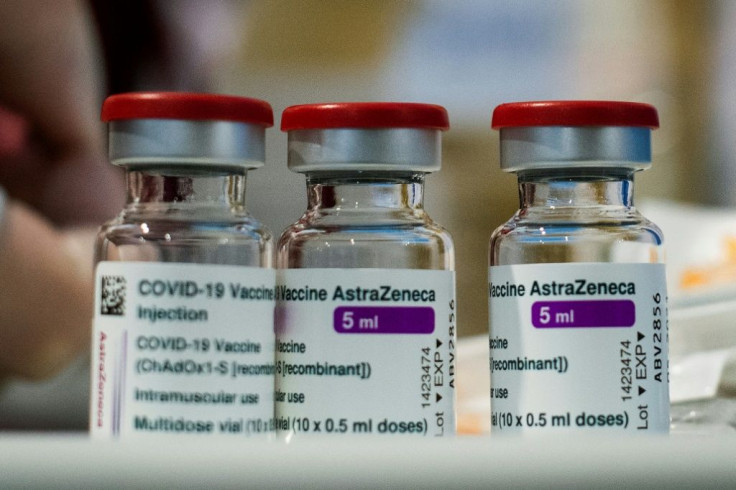AstraZeneca COVID-19 Vaccine May Cause 'Severe' Blood Clots; Countries Suspend Its Use
KEY POINTS
- Denmark suspended the use of the Oxford-AstraZeneca COVID-19 vaccine following reports of blood clots and one death
- The Danish Health Authority clarified it has not been determined if there is a link between the vaccine and the blood clots
- Other countries have also halted its use, including Iceland, Bulgaria, Luxembourg, Estonia, Lithuania and Thailand
Several countries across Europe and Asia have now suspended the use of the COVID-19 vaccine developed by AstraZeneca and the University of Oxford following reports of people forming blood clots after getting their shots.
Denmark was first to announce the vaccine suspension as a precautionary move Thursday “after reports of severe cases of blood clots in people who have been vaccinated with the COVID-19 vaccine from AstraZeneca.”
In a statement, the Danish Health Authority said, per CNBC, “Against this background, the European Medicines Agency has launched an investigation into the AstraZeneca vaccine. One report relates to a death in Denmark. At present, it cannot be concluded whether there is a link between the vaccine and the blood clots."
Shortly after Denmark's announcement, Norway, Iceland, Bulgaria, Luxembourg, Estonia, Lithuania and Latvia followed suit and announced their temporary suspension of the use of the AstraZeneca vaccine. Austria and Italy said that they will stop using certain batches as a precautionary measure, CNBC reported.
On Friday, Thailand became the first Asian country to halt the use of the Oxford-AstraZeneca vaccine, postponing the public vaccination of Prime Minister Prayuth Chan-ocha following the European countries' suspension announcements, Financial Times reported.
AstraZeneca shares on the London market tumbled 2.5% Thursday. When asked by CNBC for comment on the recent suspensions, the University of Oxford refused to respond.
Meanwhile, a rep for AstraZeneca said Thursday that the company is aware of the Danish Health Authority's concerns and that it is currently investigating the possible negative effects brought about by their vaccine.
“Patient safety is the highest priority for AstraZeneca. Regulators have clear and stringent efficacy and safety standards for the approval of any new medicine, and that includes COVID-19 Vaccine AstraZeneca. The safety of the vaccine has been extensively studied in Phase III clinical trials and Peer-reviewed data confirms the vaccine is generally well-tolerated,” AstraZeneca said in a statement.
Denmark's director of the National Board of Health, however, has made it clear that they are not opting out of using the AstraZeneca vaccine completely, but rather, they are just taking precautions by issuing a 14-day suspension while investigations are still ongoing.
“It is important to emphasize that we have not opted out of the AstraZeneca vaccine, but that we are putting it on hold. There is good evidence that the vaccine is both safe and effective. But both we and the Danish Medicines Agency have to react to reports of possible serious side effects, both from Denmark and other European countries,” Soren Brostrom shared.
Late-stage clinical trials suggested that the AstraZeneca vaccine has an efficacy rate of about 70% in protecting against COVID-19.

© Copyright IBTimes 2025. All rights reserved.





















